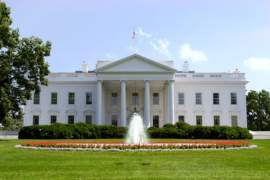
Supreme Court Definition of Freedom of Speech

Popular In Constitution
Purpose Of Lifetime Appointment And Pros And Cons Enumerated Powers Bicameral Legislature Background Article 3 Of The Constitution We The People 1st Amendment Who Wrote The Constitution Judicial Review Equal Protection Clause 5th Amendment 10th Amendment Three Fifths Compromise
The recent judicial history of the Supreme Court has seen a broad definition held of the right to freedom of speech, as it is granted to Americans by the First Amendment. One of the basic issues raised by this principle is the question of when it may infringe on other considerations, such as the ability of communities to enforce standards which they find acceptable, groups and individuals to protect themselves against violence, and prominent figures to be free of slander and libel.
The definition of obscenity, for instance, has been thrown into question as to the extent to which it can rule out the exercise of First Amendment rights. Legal commentators have observed that the general direction of the Supreme Court has been toward granting the primacy of the right to freedom of speech.
The case of Whitney v. California addressed the conditions in
which the exercise of the right to freedom of speech came up against the need
to guard against violent action. This case involved the First Amendment claims
made by Anna Whitney, who had been jailed under California's criminal
syndicalism laws for beginning the State's Communist Labor Party, which was
accused of inciting violence. The Supreme Court upheld the conviction and
denied that the right to freedom of speech guarded against Whitney's conviction.
Justice Brandeis observed on
the case, however, that "fear of serious injury alone cannot justify
suppression of free speech", but that such an action can only be performed
if there exists a "reasonable" basis on which to conclude that the
speech will lead to actual violence. He thus distinguished between
"advocacy and incitement". Though Brandeis agreed with the Court's
finding in regards to the specific case, his opinion established an argument by
which the unpopular exercising of the freedom of speech could later be extended.
The application of the First Amendment right to freedom of speech
to minors was addressed in the landmark case heard before the Supreme Court of
Tinker v. Des Moines. The defendants in this case were a pair of siblings in high
school and junior high who were prevented by school policy from wearing black
armbands to express their opposition to the Vietnam War. This policy had not
existed before the students made their plans in 1965, but was created shortly
before the planned protest, possibly in anticipation of it, to mandate the
suspension of any student wearing an armband. When the Tinkers chose to go
ahead with their protest, they were accordingly suspended by the
administration. An appeal was lodged on their behalf by the Iowa Civil
Liberties Union, which claimed a First Amendment violation, and by 1968 the
case had reached the Supreme Court.
A Supreme Court majority decided in favor of the Tinkers' claim that their First Amendment rights to freedom of speech had been violated, finding that the school administration did not sufficiently establish that overall discipline would be compromised by the Tinkers' exercise of freedom of speech. Later Court cases established limits to the freedoms granted to students.
NEXT: Symbolic Speech Explained




















